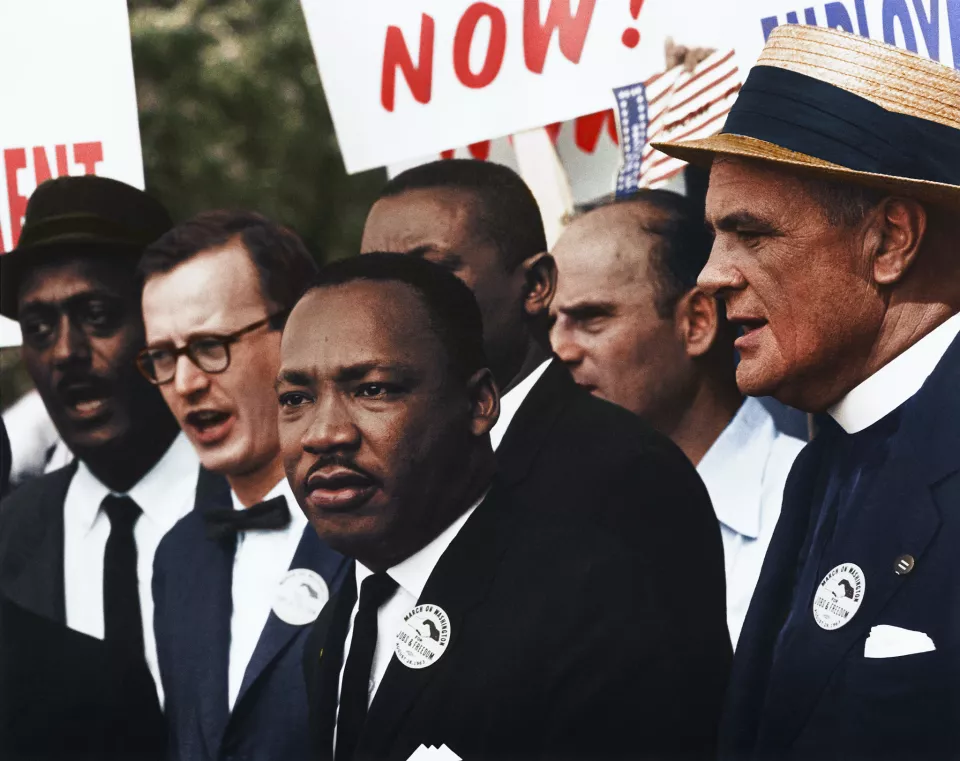Gandhi - on non-violence
After having led efforts to peacefully resist the curtailment of civil rights in South Africa, and inspired by his own background, spiritual beliefs and the writings of Leo Tolstoy, Mahatma Gandhi went on to join and then lead the Indian National Congress from 1921.
Using his foundational principle of commitment to non-violence, he organised and led peasants, rural Indians and labourers in movements against discrimination, led efforts to ease poverty, to expand women's rights, to end untouchability, and ultimately, to achieve self-rule, or independence from the rule of the British empire.
This short film captures an explanation from Gandhi of the principle of non-violence.

Phill Pullinger
After having led efforts to peacefully resist the curtailment of civil rights in South Africa, and inspired by his own background, spiritual beliefs and the writings of Leo Tolstoy, Mahatma Gandhi went on to join and then lead the Indian National Congress from 1921.
Using his foundational principle of commitment to non-violence, he organised and led peasants, rural Indians and labourers in movements against discrimination, led efforts to ease poverty, to expand women's rights, to end untouchability, and ultimately, to achieve self-rule, or independence from the rule of the British empire.
This short film captures an explanation from Gandhi of the principle of non-violence.
You might like...

"I have a dream" - speech by Martin Luther King

Walden by Henry D Thoreau

Emmeline Pankhurst gives speech at Hartford

Let the Franklin Flow - Saving a Wild River
Newsletter
Sign up to keep in touch with articles, updates, events or news from Kuno, your platform for nature
